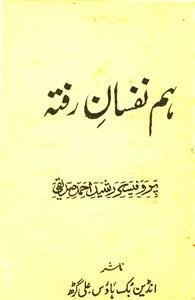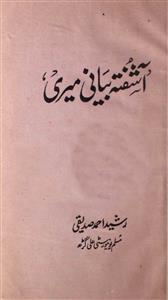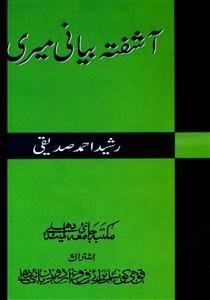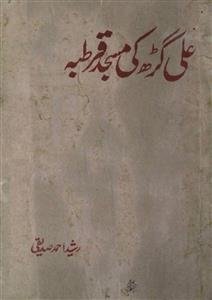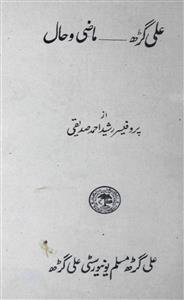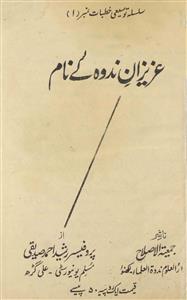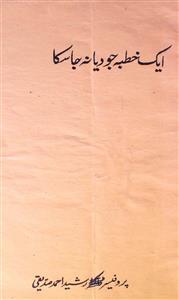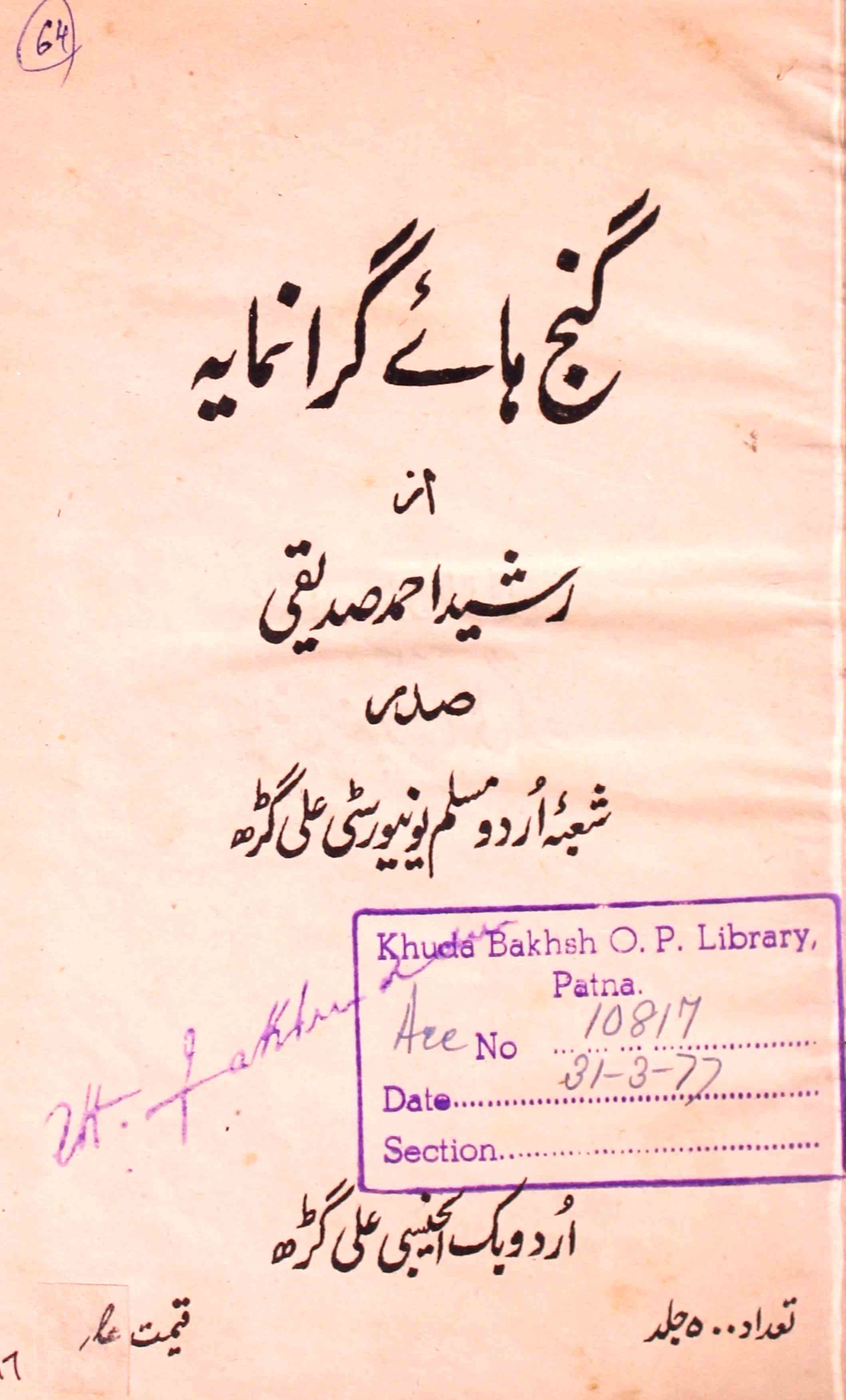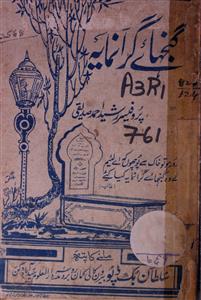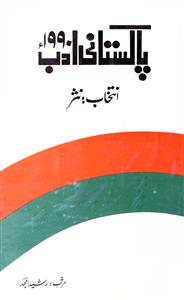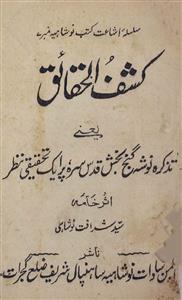 For any query/comment related to this ebook, please contact us at haidar.ali@rekhta.org
For any query/comment related to this ebook, please contact us at haidar.ali@rekhta.org
About The Book
"ہم نفسانِ رفتہ" رشیداحمد صدیقی کا اہم کارنامہ ہے۔ ان کے اسلوب کی دلکشی کا کمال یہ ہے کہ انھوں نے مرقعے پیش کرنے کے بجائے کردار تخلیق کئے ہیں۔ ہم نفسان رفتہ میں سات شخصیات پر لکھے گئے خاکے شامل ہیں جس کی تفصیل اس طرح ہے "شفیق الرحمن قدوائی، مولانا سید سلیمان ندوی ، ڈاکٹر عبد الحق ، نواب محمد اسمعیل خاں مرحوم ، مولانا ابو الکلام آزاد ، پروفیسر احمد شاہ بخاری پطرس اورکندن۔
About The Author
The story of the art and humor of Rasheed Ahmad Siddiqui is the story of many facets of life at the Aligarh Muslim University. Aligarh is his passion, and writing his adoration. With his extreme individualism, his quick mind and a rare sense of humor, he ranks high among the contemporary Urdu essayists and satirist.
Born in Maryahu, Jaunpur in 1896, he was educated first at a local school and then went to Aligarh where he worked as a clerk in a local court to sustain his studies at the university. He started teaching in Aligarh in 1922 and settled there permanently. He retired from there as the Chairman, Department of Urdu. Aligarh to him is a way of life, a mode of thinking. His association with and attachment to Aligarh is told brilliantly in his highly readable biography, ‘Ashufta Bayani Meri’.
Rasheed Ahmad Siddiqui is a perfectionist and concentrates on his subject and style. Mazamin-e-Rasheed and Khandan are his two acknowledged masterpieces. The two books ‘Ganj-Haa-e-Garaan-Maaya’ and ‘Ham-Nafasan-e-Raftah’ contain sketches of some of the leading national and literary personalities of this country. He writes a delicately decorated and polished language. His style leans heavily towards the Arabic and Persian usage, yet it is terse and concise rather than heavy and ornate. Though his essays run warm and wide human sympathies, regard for classical values and restrained wit; beneath the blithe surface lies something of the pathos which has made up his life and personality. His writings play up his close associations with life and events at Aligarh, draw openly upon his prejudices, and develop the ideas in a rather loose structure. He is read and remembered more for his language and epigrams than for consistent, total essays. His prose is full of ripe wisdom and insight into the universal human ideals and motivations and abounds in succinct, pointy and pithy sayings often with a satiric or paradoxical twist at the end. This quality has made him one of the most quoted contemporary authors in Urdu.
 For any query/comment related to this ebook, please contact us at haidar.ali@rekhta.org
For any query/comment related to this ebook, please contact us at haidar.ali@rekhta.org
